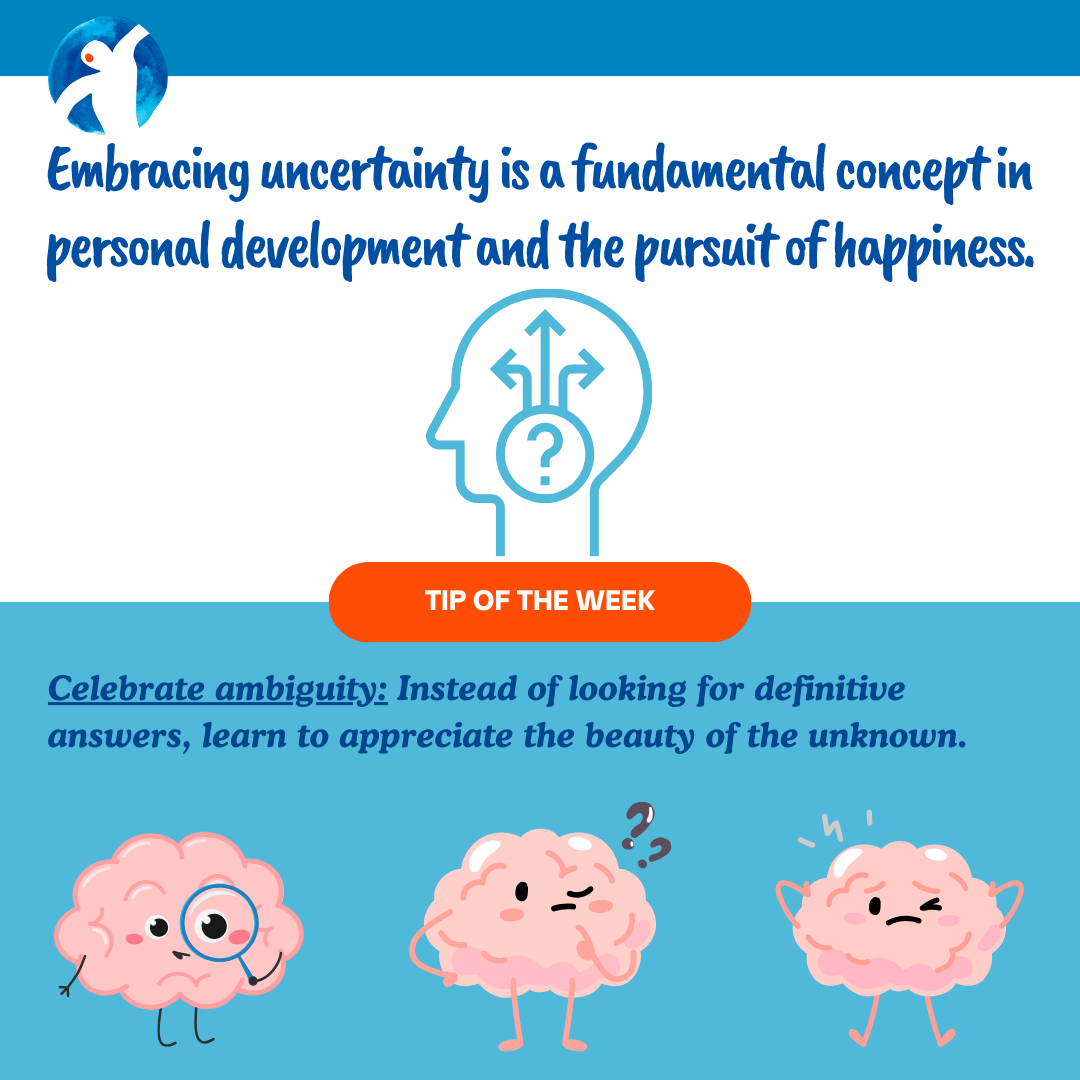
“Embrace uncertainty.”
Life is full of change and the unknown. Learning to embrace uncertainty can reduce anxiety and increase resilience. Embracing uncertainty is a fundamental concept in personal development and the pursuit of happiness.
What does it mean to embrace uncertainty?
Embracing uncertainty involves recognizing that we do not always have control over the events of our lives and that the future is uncertain. Instead of resisting this reality, we seek an attitude of openness and curiosity toward what may happen.
Why is it important?
- Reduces anxiety: When we cling to the need to know what will happen, we generate anxiety. Embracing uncertainty allows us to let go and enjoy the present.
- Increases resilience: By facing uncertainty with a positive attitude, we develop the ability to adapt to changes and overcome challenges.
- Fosters creativity: When we don’t know what will happen, our minds open up to new possibilities and solutions.
- Improve relationships: By accepting that people and situations change, we can build stronger, more resilient relationships.
How can we learn to accept uncertainty?
- Practice mindfulness: Focusing on the present and accepting what is happening without judgment can help reduce anxiety and increase awareness.
- Challenge your negative thoughts: When you find yourself thinking about catastrophic scenarios, stop and question the evidence that supports those thoughts.
- Celebrate ambiguity: Instead of looking for definitive answers, learn to appreciate the beauty of the unknown.
- Seek support: Talking to friends, family, or a therapist can help you develop tools to manage uncertainty.
Benefits of accepting uncertainty:
- Greater sense of inner peace.
- Greater flexibility and adaptability.
- Increased creativity and innovation.
- Healthier relationships.
- Greater enjoyment of life.
Examples of situations where we can apply this:
- Job changes: When losing a job or starting a new one, we may feel uncertain about the future. Personal relationships: Relationships evolve over time and unexpected challenges may arise.
- Health: Facing illness or injury can create a lot of uncertainty.
- Economic situations: Financial markets are volatile and can create uncertainty.

